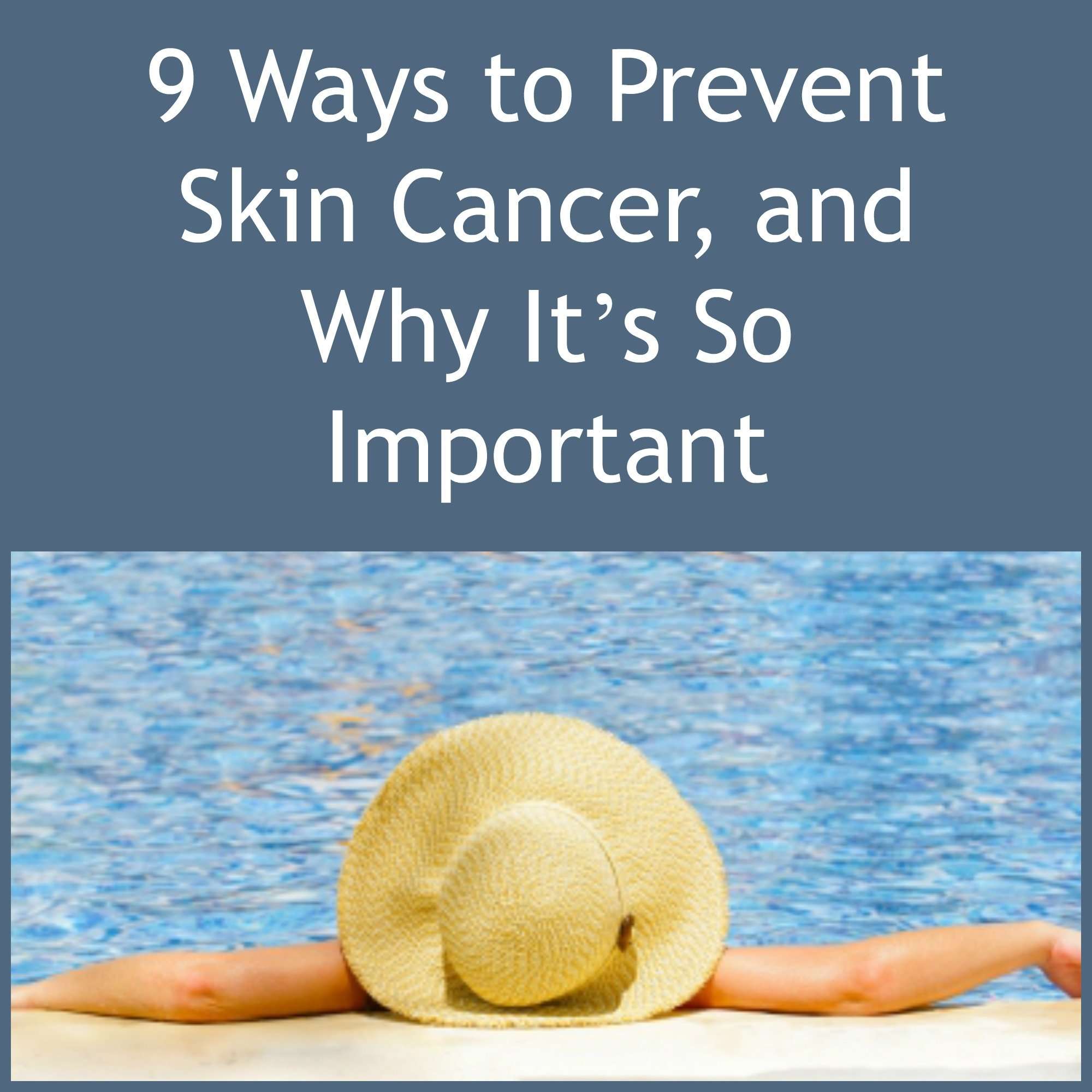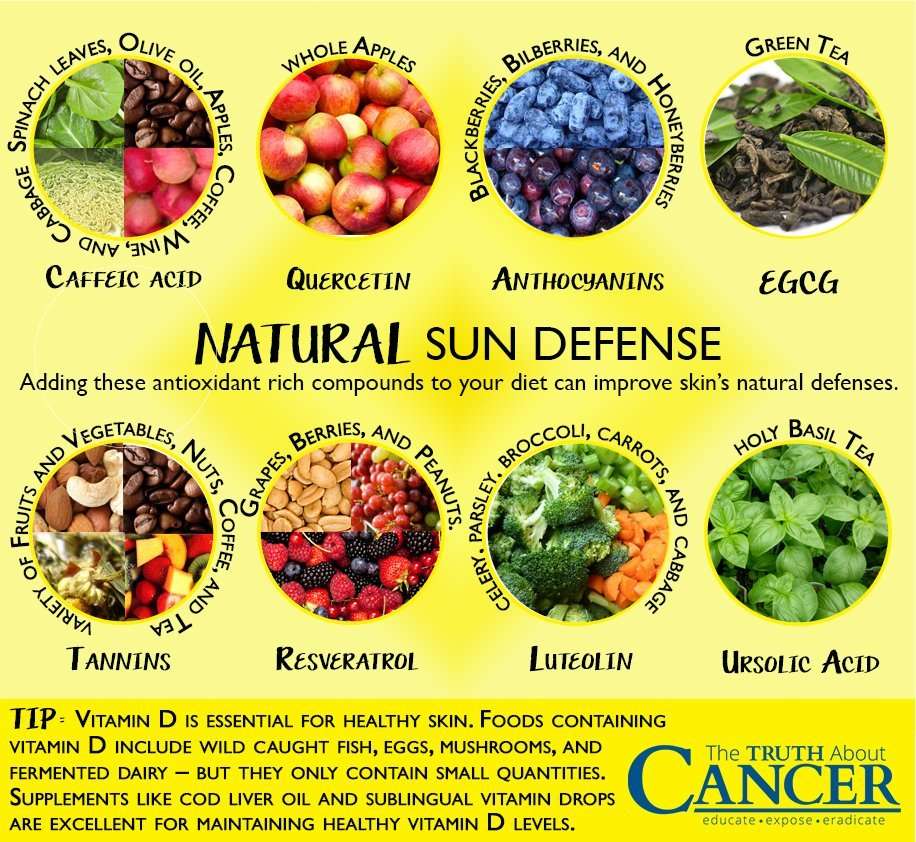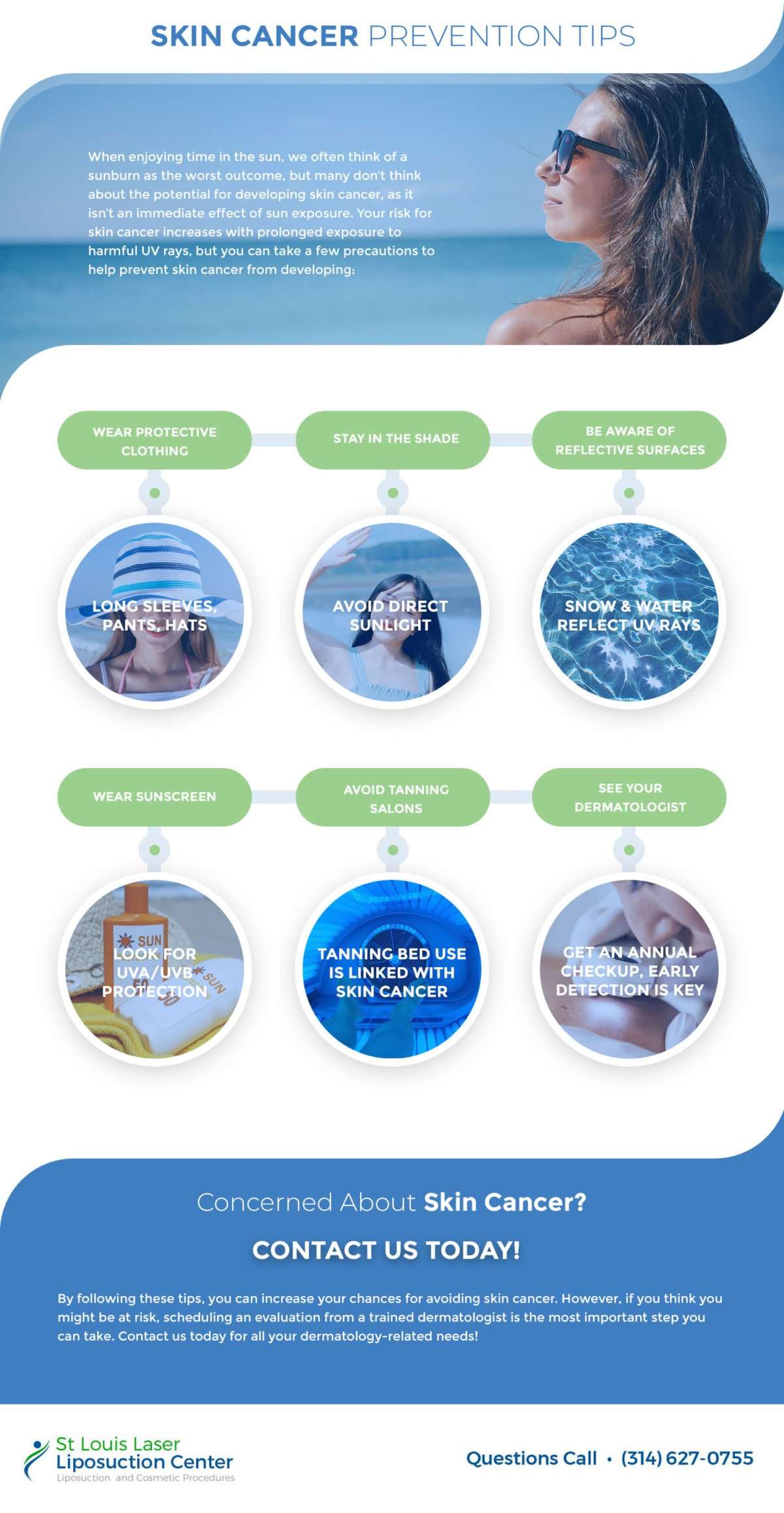Skin Cancer Prevention Patient Version
On This Page
Cancerprevention is action taken to lower the chance of getting cancer. By preventing cancer, the number of new cases of cancer in a group or population is lowered. Hopefully, this will lower the number of deaths caused by cancer.
To prevent new cancers from starting, scientists look at risk factors and protective factors. Anything that increases your chance of developing cancer is called a cancer risk factor anything that decreases your chance of developing cancer is called a cancer protective factor.
Some risk factors for cancer can be avoided, but many cannot. For example, both smoking and inheriting certain genes are risk factors for some types of cancer, but only smoking can be avoided. Regular exercise and a healthy diet may be protective factors for some types of cancer. Avoiding risk factors and increasing protective factors may lower your risk but it does not mean that you will not get cancer.
Different ways to prevent cancer are being studied.
Cancer May Spread From Where It Began To Other Parts Of The Body
When cancer spreads to another part of the body, it is called metastasis. Cancer cells break away from where they began and travel through the lymph system or blood.
- Lymph system. The cancer gets into the lymph system, travels through the lymph vessels, and forms a tumor in another part of the body.
- Blood. The cancer gets into the blood, travels through the blood vessels, and forms a tumor in another part of the body.
The metastatic tumor is the same type of cancer as the primary tumor. For example, if skin cancer spreads to the lung, the cancer cells in the lung are actually skin cancer cells. The disease is metastatic skin cancer, not lung cancer.
Clothing As A Sunscreen Alternative
The Australians have a motto: Slip, slap, and slop. That means, Slip on a shirt, slap on a hat, and slop on sunscreen. Clothes, hats, and sunglasses can all help protect the skin from sun exposure. The most effective garments will have a UV protection factor of at least 30 and/or be made of tightly woven synthetic materials like acrylic or lycra. Long-sleeve shirts and pants plus dark clothing provide more protection than shorts, short-sleeve shirts, and light clothing.
Hats with broad brims that are at least four inches around can protect the face, neck, and scalp. Sunglasses should be dark and provide 100 percent protection from both UVA and UVB rays.
Don’t Miss: Prognosis For Skin Cancer
Permission To Use This Summary
PDQ is a registered trademark. The content of PDQ documents can be used freely as text. It cannot be identified as an NCI PDQ cancer information summary unless the whole summary is shown and it is updated regularly. However, a user would be allowed to write a sentence such as NCIs PDQ cancer information summary about breast cancer prevention states the risks in the following way: .
The best way to cite this PDQ summary is:
PDQ® Screening and Prevention Editorial Board. PDQ Skin Cancer Prevention. Bethesda, MD: National Cancer Institute. Updated < MM/DD/YYYY> . Available at: . Accessed < MM/DD/YYYY> .
Images in this summary are used with permission of the author, artist, and/or publisher for use in the PDQ summaries only. If you want to use an image from a PDQ summary and you are not using the whole summary, you must get permission from the owner. It cannot be given by the National Cancer Institute. Information about using the images in this summary, along with many other images related to cancer can be found in Visuals Online. Visuals Online is a collection of more than 3,000 scientific images.
Understand Where The Sites Content Originated

Was it written by the person in charge of the site? What are the credentials of the author or reviewer? Are outside sources clearly identified? Are published articles from reputable medical journals cited in support of medical or scientific information? Are recommendations based only on testimonials?
Don’t Miss: Invasive Ductal Breast Cancer Survival Rate
Tests Or Procedures That Examine The Skin Are Used To Diagnose Basal Cell Carcinoma And Squamous Cell Carcinoma Of The Skin
The following procedures may be used:
- Physical exam and health history: An exam of the body to check general signs of health, including checking for signs of disease, such as lumps or anything else that seems unusual. A history of the patients health habits and past illnesses and treatments will also be taken.
- Skin exam: An exam of the skin for bumps or spots that look abnormal in color, size, shape, or texture.
- Skin biopsy: All or part of the abnormal-looking growth is cut from the skin and viewed under a microscope by a pathologist to check for signs of cancer. There are four main types of skin biopsies:
- Shave biopsy: A sterile razor blade is used to shave-off the abnormal-looking growth.
- Punch biopsy: A special instrument called a punch or a trephine is used to remove a circle of tissue from the abnormal-looking growth. Enlarge Punch biopsy. A hollow, circular scalpel is used to cut into a lesion on the skin. The instrument is turned clockwise and counterclockwise to cut down about 4 millimeters to the layer of fatty tissue below the dermis. A small sample of tissue is removed to be checked under a microscope. Skin thickness is different on different parts of the body.
- Incisional biopsy: A scalpel is used to remove part of a growth.
- Excisional biopsy: A scalpel is used to remove the entire growth.
What Is Apple Cider Vinegar
Apple cider vinegar is a strong-smelling vinegar thats made from apples that have been crushed, distilled, and fermented. Most people describe the taste as sour.
The vinegar has high levels of acetic acid, which is thought to provide health benefits. It also contains polyphenols special antioxidants that are known to lessen the cell damage thats associated with diseases like cancer.
Some cooking recipes call for apple cider vinegar. Its also commonly used as a cleaning solution, skin toner, teeth whitener, or alternative health treatment.
RELATED: Is Apple Cider Vinegar Good for Alzheimers Disease?
You May Like: Invasive Breast Cancer Prognosis
Ask Your Doc About Sun
If you frequently eat nutrient-rich produce in a wide array of colors, youre already providing your body with lots of supportive vitamins and minerals. But some supplements might help kick your skin protection up a little bit.
Dr. Herman says that research currently supports two supplements. The first is Heliocare, which contains a plant extract called Polypodium leucotomos extract that may help protect your skin from free radicals. Then, theres niacin , which may reduce the risk of squamous-cell and basal-cell skin cancers. Before trying a new supplement, talk to your dermatologist to see if it make sense for you.
There Are Three Ways That Cancer Spreads In The Body
Cancer can spread through tissue, the lymph system, and the blood:
- Tissue. The cancer spreads from where it began by growing into nearby areas.
- Lymph system. The cancer spreads from where it began by getting into the lymph system. The cancer travels through the lymph vessels to other parts of the body.
- Blood. The cancer spreads from where it began by getting into the blood. The cancer travels through the blood vessels to other parts of the body.
Recommended Reading: Ductal Invasive Carcinoma Survival Rate
Take Action No Matter What Color Your Skin Is
Skin cancer can happen in all ethnicities, including persons of color, says Yolanda Lenzy, M.D., a board-certified dermatologist and licensed cosmetologist in Chicopee, MA. In fact, reggae star Bob Marley died from malignant melanoma on his foot.
While its true that more skin pigmentation might lower your risk of developing skin cancer, research shows that people of color die from melanoma at a higher rate than white people. On top of that, consider what sun damage can do to your skin overall, says Susan Chon, M.D., professor of dermatology at University of Texas MD Anderson Cancer Center. That may be dyspigmentation, wrinkles, or uneven color.
How Do You Use Apple Cider Vinegar
Dosing recommendations vary, but most people take up to 1 to 2 tablespoons by mouth a day. Youll want to add about a cup of water to dilute it.
Apple cider vinegar also comes in capsules, tablets, and gummies, which may be easier for some people to take.
If youre applying apple cider vinegar to your skin, be careful not to leave it on too long. Make sure you dilute the vinegar in water and test it over a small patch of skin first. Also, rinse the area well after use. Recommendations on how much to use and how long to leave it on vary. Its a good idea to talk to your doctor before putting it on your skin.
You May Like: What Is The Survival Rate For Invasive Lobular Carcinoma
Ways To Protect Against Skin Cancer
- By Emily S. Ruiz, MD, MPH, Contributor
Its almost May and here in the Northeast, front-of-the-pharmacy aisles are filled with myriad brands and types of sunscreen. While sunscreen is essential to lowering your risk for skin cancer, there are other simple, over-the-counter options you can incorporate into your summer skin protection routine.
Remain In Shade During Peak Hours:

Unless and until extremely important, keep in shade during the peak hours. The sunrays are strongest between 10 a.m. to 4 p.m. This is the time of the day when you should stay away from the sun, especially if you want to prevent skin cancer. It is also recommended to keep children in shades during the peak hours to protect their delicate skin from UV rays.
You May Like: Web Md Skin Cancers
It Is Not Known If The Following Lower The Risk Of Melanoma:
Sunscreen
It has not been proven that using sunscreen to prevent sunburn can protect against melanoma caused by UV radiation. Other risk factors such as having skin that burns easily, having a large number of benign moles, or having atypical nevi may also play a role in whether melanoma forms.
Counseling and protecting the skin from the sun
It is not known if people who receive counseling or information about avoiding sun exposure make changes in their behavior to protect their skin from the sun.
Vitamins Minerals And Antioxidants
Your body needs vitamins and minerals. They help the body:
-
Perform essential functions
-
Grow and develop
-
Repair itself
Some vitamins, minerals, and other nutrients are antioxidants. Research on their role in cancer prevention continues because studies show mixed results.
A review of clinical trials in people shows the following:
Beta carotene. High-dose beta carotene supplements do not seem to prevent cancer. Two large clinical trials have found that people at high risk for lung cancer, including smokers, former smokers, and people exposed to asbestos, have a higher risk of lung cancer if they take high-dose beta carotene supplements.
Calcium and vitamin D. The Womenâs Health Initiative was a large study of women who had been through menopause and were generally well nourished. Researchers studied the effects of supplemental calcium and vitamin D. They found that supplements did not affect colorectal cancer risk.
Folate. Folate is a type of B vitamin found in:
-
Leafy, green vegetables
-
Fruits and fruit juices
-
Dried beans and peas
One form, folic acid, is made in the laboratory and found in dietary supplements. Enriched, white flour is fortified with it. This means that foods made with flour, including breads and cereals, contain folic acid.
Studies show a link between folate and cancer risk. People with low folate levels have a higher risk of:
-
Breast cancer
-
Colon cancer
-
Pancreatic cancer
-
Prostate cancer
-
Lung cancer
-
Colorectal cancer
Also Check: Well-differentiated Squamous Cell Carcinoma Prognosis
Basal Cell Carcinoma Squamous Cell Carcinoma Of The Skin And Actinic Keratosis Often Appear As A Change In The Skin
Not all changes in the skin are a sign of basal cell carcinoma, squamous cell carcinoma of the skin, or actinic keratosis. Check with your doctor if you notice any changes in your skin.
Signs of basal cell carcinoma and squamous cell carcinoma of the skin include the following:
- A sore that does not heal.
- Areas of the skin that are:
- Raised, smooth, shiny, and look pearly.
- Firm and look like a scar, and may be white, yellow, or waxy.
- Raised and red or reddish-brown.
- Scaly, bleeding, or crusty.
Basal cell carcinoma and squamous cell carcinoma of the skin occur most often in areas of the skin exposed to the sun, such as the nose, ears, lower lip, or top of the hands.
Signs of actinic keratosis include the following:
- A rough, red, pink, or brown, scaly patch on the skin that may be flat or raised.
- Cracking or peeling of the lower lip that is not helped by lip balm or petroleum jelly.
Actinic keratosis occurs most commonly on the face or the top of the hands.
Create Your Own Shade
Sunscreen should be your first defense against the suns harmful rays no matter where you arebut it shouldnt be your only one. If youre outside and its possible to step into the shade , do it.
It makes a huge difference, says Dr. Chon, who also recommends using sun-protective clothing as a form of shade, especially if youre in the sun for a long time. A lot of brands like Athleta and Lululemon have UPF-rated clothes now.
If you love to go running or hiking, try a rashguard. Theyre super effective and cover all those areas that are hard to reach like your shoulders, back, and neck, says Dr. Chon.
You May Like: Basal Cell Carcinoma Syndrome
Dont Put Off Appointments
The sooner you see a dermatologist, the sooner you can tackle whatever issues come up together, says Dr. Chon. Thats especially important when it comes to skin cancer. When its little and its just starting, its super easy to take care of, she points out. If its early, its much, much better.
She says some patients worry that theyre overreacting and wasting her time if a spot turns out to be benign, but thats not true. Thats my job, and thats why Im here, she says. Theres no harm in getting it checked. Plus, unlike some other health screenings, skin checks are pretty straightforward and require no extra prep ahead of time.
So What Foods And Which Nutrients Do You Need To Include On Your Next Shopping List
Who loves nothing more than a fishing trip with friends when the weather starts to warm up? Or for some of us, a quick visit to the fish markets or supermarket helps to ensure that we have a delicious piece of salmon or tuna for dinner. Whilst being a treat for thetastebuds, the oils in fish also offer additional health benefits one of these, according to the University of Manchester, is to help prevent skin cancer. Results from a study performed by the University suggest that Omega 3 fish oils improve immunity to sunlight. Fatty fish including trout, salmon and tuna contain large quantities of omega-3 fatty acids. So if youre unsure what to do for dinner tonight, why not cook some salmon with veggies for a healthy, delicious meal that could also be helping your skin!
After your trip to the fish shop, visit your local grocer, as foods that are high in carotenoids i.e. an array of fruit and vegetables are believed to help protect the skin against harmful UV radiation, according to withhealthfood.org. The Physicians Committee for Responsible Medicine states that carotenoids act as antioxidants, fighting cancer-causing free radicals. Foods that contain high levels of carotenoids include carrots, collard greens, sweet potatoes and tomatoes. A good way of remembering which fruits and vegetables are high in carotenoids is to look for those fruits and vegetables that are orange, red, yellow or green colour.
| Nutrient |
Recommended Reading: Invasive Ductal Carcinoma Grade 2 Survival Rate
Behavioral Ways To Prevent Skin Cancer
The suns rays are strongest between 10 a.m. and 4 p.m. Staying inside during these hours is a simple way to protect your skin. Schedule outdoor chores for the early morning or late afternoon whenever possible.
One way to estimate the strength of the suns rays is to look at your shadow. If your shadow is shorter than you, the suns rays are strong, and you should go back inside. If your shadow is taller than you, the suns UV rays are comparatively weak, and you can be outside.
Avoid using tanning beds or sunlamps. The UV rays they produce can cause sunburns and skin cancer as powerful as the rays produced by the sun.
Some medications can increase a patients sensitivity to UV rays. Please ask your doctor about medications that cause photosensitivity since their may be a safer alternative.
Natural Skin Cancer Prevention Options

First, I will say, that a little bit of natural sunlight, without sunscreen, can be great to produce Vitamin D, a vitamin many of us are deficient in. You can read more about how to safely do that here.
Most of us, however, spend way more time outdoors than that needed to generate Vitamin D so these skin care prevention options are for you.
Recommended Reading: Cancer All Over Body Symptoms
Natural Ways To Prevent Skin Cancer
If you really want to avoid chemicals, the above natural ways to prevent skin cancer are all good alternatives to sunscreen. However, it is recommended to use at least a natural sunscreen in order to best prevent skin cancer. If youre concerned about skin cancer or issues youre experiencing from sun damage, reach out to Dr. Payal Bhandari M.D. at Advanced Health for a consultation!
You Might Also Enjoy…